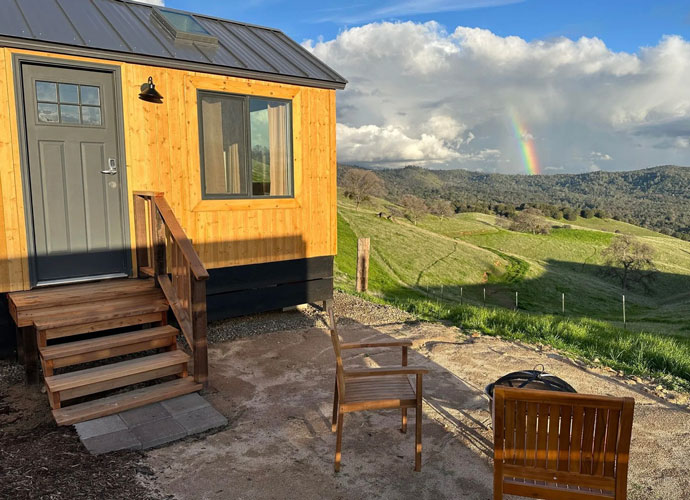Oumar Touré On ‘They Will Have To Kill Us First’ [EXCLUSIVE VIDEO]
Oumar Touré, the bass player for Songhoy Blues, is one of the many Malian musicians that figure prominently in the documentary They Will Have to Kill Us First.
Oumar Touré On ‘They Will Have To Kill Us First’
In Mali, Islamic extremists waged a coup in the north of the country, using Sharia Law to ban – among other things – the playing of Western music. As a result of the law, passionate Malian musicians have gone into exile and continue to create music that could result in serious consequences. Everyone, according to Toure, was terrified by the imposition of the strict laws – but they’ll continue making their music anyway.
“The situation in Mali at the moment is still unstable. And [They Will Have to Kill Us First] is great because it will show a lot of people what the situation there has been like, especially for those that don’t really know anything about it,” said Touré. “And for us, there might be some potentially negative repercussions when the film comes out, but for us, the main thing is really that we’re playing our music and that’s what we like to do.”
Getting involved in They Will Have to Kill Us First, Songhoy Blues and other musicians Vieux Farke Toure, Kankou Kouyate, Afel Boucom and Amkoullel all came together for the project. The opportunity gave them all more exposure and the chance to work with respected and well-known artists.
“They were so excited to actually be part of the whole thing and you know to meet big names like Brian Eno and Damon Albarn,” said Touré. “They were just totally overjoyed to be able to bring their music as somewhere close to the west.”
As for Songhoy Blues, they had already left Mali for London, where they could safely make music, though they hope that they can one day return to Mali. Through the movie, the other musicians were able to head to London to meet up with them and begin touring.
“For them they’d only ever been playing in Bamako and smaller clubs and obviously in front of Malians, so for them coming to London, they were really stressed out but they were so excited. They just loved it,” said Touré.
Touré, in addition to touring London with Songhoy Blues, has been stateside with the band, opening for Alabama Shakes.
[Translator]Their first reaction was that they were terrified and that was the same for everyone in the north of Mali.
[Translator] So they heard about the project through the journalist, a music journalist, Andy Morgan, put them in touch. And they met him the first time in London when they wrote for Africa express.
[Translator] They were so excited to actually be part of the whole thing and you know to meet big names like Brian Eno and Damon Albarn. They were just totally overjoyed to be able to bring their music as somewhere close to the west.
[Translator] For them they’d only ever been playing in Bamako and smaller clubs and obviously in front of Malians, so for them coming to London, they were really stressed out but they were so excited. They just loved it.
[Translator] So the situation in Mali at the moment is still unstable. And the film is great because it will show a lot of people what the situation there has been like, especially for those that don’t really know anything about it. And for us, there might be some potentially negative repercussions, we don’t really know yet, when the film comes out. But for us, the main thing is really that we’re playing our music and that’s what we like to do.
RELATED ARTICLES
Get the most-revealing celebrity conversations with the uInterview podcast!



![Oumar Touré On ‘They Will Have To Kill Us First’ [EXCLUSIVE VIDEO]](https://cdn-o9.uinterview.com/wp-content/uploads/2015/04/news-oumare-toure.jpg)
![Marissa Jaret Winokur And Cathryn Michon On ‘Muffin Top: A Love Story’ [VIDEO EXCLUSIVE]](/blank.gif)




Leave a comment